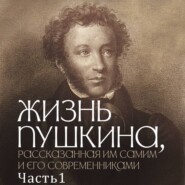По всем вопросам обращайтесь на: info@litportal.ru
(©) 2003-2025.
✖
The German Classics of the Nineteenth and Twentieth Centuries, Volume 01
Настройки чтения
Размер шрифта
Высота строк
Поля
For gladness lends ever its charms to the glad,
So, brethren, sing: ERGO BIBAMUS!
And what shall we say of to-day as it flies?
I thought but of: ERGO BIBAMUS!
'Tis one of those truly that seldom arise,
So again and again sing: BIBAMUS!
For joy through a wide-open portal it guides,
Bright glitter the clouds as the curtain divides,
And a form, a divine one, to greet us in glides,
While we thunder our: ERGO BIBAMUS.
THE WALKING BELL[23 - Translator: E. A. Bowring.] (1813)
A child refused to go betimes
To church like other people;
He roamed abroad, when rang the chimes
On Sundays from the steeple.
His mother said: "Loud rings the bell,
Its voice ne'er think of scorning;
Unless thou wilt behave thee well,
'Twill fetch thee without warning."
The child then thought: "High over head
The bell is safe suspended—"
So to the fields he straightway sped
As if 'twas school-time ended.
The bell now ceased as bell to ring,
Roused by the mother's twaddle;
But soon ensued a dreadful thing!—
The bell begins to waddle.
It waddles fast, though strange it seem;
The child, with trembling wonder,
Runs off, and flies, as in a dream;
The bell would draw him under.
He finds the proper time at last,
And straightway nimbly rushes
To church, to chapel, hastening fast
Through pastures, plains, and bushes.
Each Sunday and each feast as well,
His late disaster heeds he;
The moment that he hears the bell,
No other summons needs he.
FOUND[24 - Translator: E. A. Bowring.] (1813)
Once through the forest
Alone I went;
To seek for nothing
My thoughts were bent.
I saw i' the shadow
A flower stand there;
As stars it glisten'd,
As eyes 'twas fair.
I sought to pluck it,—
It gently said:
"Shall I be gather'd
Only to fade?"
With all its roots
I dug it with care,
And took it home
To my garden fair.
In silent corner
Soon it was set;
There grows it ever,
There blooms it yet.
HATEM[25 - Translator: A. I. du P. Coleman.] (1815)
Locks of brown, still bind your captive
In the circle of her face!
I, beloved sinuous tresses,
Naught possess that's worth your grace—
But a heart whose love enduring
Swells in youthful fervor yet:
Snow and mists envelop Etna,
Making men the fire forget.
Yonder mountain's pride so stately
Thou dost shame like dawn's red glow;
And its spell once more bids Hatem
Thrill of spring and summer know.
Once more fill the glass, the flagon!
Let me drink to my desire.
If she find a heap of ashes,
Say, "He perished in her fire!"
REUNION[26 - Translator: A. I. du P. Coleman.] (1815)
So, brethren, sing: ERGO BIBAMUS!
And what shall we say of to-day as it flies?
I thought but of: ERGO BIBAMUS!
'Tis one of those truly that seldom arise,
So again and again sing: BIBAMUS!
For joy through a wide-open portal it guides,
Bright glitter the clouds as the curtain divides,
And a form, a divine one, to greet us in glides,
While we thunder our: ERGO BIBAMUS.
THE WALKING BELL[23 - Translator: E. A. Bowring.] (1813)
A child refused to go betimes
To church like other people;
He roamed abroad, when rang the chimes
On Sundays from the steeple.
His mother said: "Loud rings the bell,
Its voice ne'er think of scorning;
Unless thou wilt behave thee well,
'Twill fetch thee without warning."
The child then thought: "High over head
The bell is safe suspended—"
So to the fields he straightway sped
As if 'twas school-time ended.
The bell now ceased as bell to ring,
Roused by the mother's twaddle;
But soon ensued a dreadful thing!—
The bell begins to waddle.
It waddles fast, though strange it seem;
The child, with trembling wonder,
Runs off, and flies, as in a dream;
The bell would draw him under.
He finds the proper time at last,
And straightway nimbly rushes
To church, to chapel, hastening fast
Through pastures, plains, and bushes.
Each Sunday and each feast as well,
His late disaster heeds he;
The moment that he hears the bell,
No other summons needs he.
FOUND[24 - Translator: E. A. Bowring.] (1813)
Once through the forest
Alone I went;
To seek for nothing
My thoughts were bent.
I saw i' the shadow
A flower stand there;
As stars it glisten'd,
As eyes 'twas fair.
I sought to pluck it,—
It gently said:
"Shall I be gather'd
Only to fade?"
With all its roots
I dug it with care,
And took it home
To my garden fair.
In silent corner
Soon it was set;
There grows it ever,
There blooms it yet.
HATEM[25 - Translator: A. I. du P. Coleman.] (1815)
Locks of brown, still bind your captive
In the circle of her face!
I, beloved sinuous tresses,
Naught possess that's worth your grace—
But a heart whose love enduring
Swells in youthful fervor yet:
Snow and mists envelop Etna,
Making men the fire forget.
Yonder mountain's pride so stately
Thou dost shame like dawn's red glow;
And its spell once more bids Hatem
Thrill of spring and summer know.
Once more fill the glass, the flagon!
Let me drink to my desire.
If she find a heap of ashes,
Say, "He perished in her fire!"
REUNION[26 - Translator: A. I. du P. Coleman.] (1815)

















